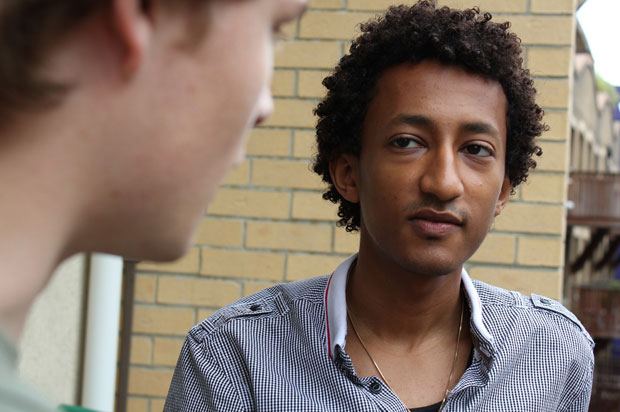How can I help an addict?
When a friend or family member becomes addicted to drink or drugs their problem can easily become your own. Here's how you can cope.

Supporting someone with an addiction can be hard
Can I make an addict stop?
It can be distressing to see the health and wellbeing of someone you’re close to become affected by alcohol or drug abuse. While you can offer valuable support to someone who wants to overcome their problem, bear in mind that not all people will readily accept help, or even admit to having a problem. You can’t make someone stop abusing drink or drugs; they must recognise the problem first before making the decision themselves to overcome it.
Although you may not be in control of their problem, you can still be supportive while taking charge of your own feelings and getting help where you need it.
Am I safe around an addict?
Sometimes people can behave unpredictably when they drink or take drugs. Their moods and actions can become erratic, which at best can be embarrassing or frustrating for friends and family, but at worst can become aggressive or violent. Don’t tolerate abuse of any nature, whether physical or emotional – you have the right to put your own safety and wellbeing first.
Ensure you can confide in someone if necessary, such as a close friend or relative. If you don’t feel you can talk to anyone you know, you could call SupportLine on 020 8554 9004 for confidential emotional help and assistance. They can also help you find relevant counsellors, agencies and support groups in your area.
If you’re living with a person whose behaviour puts your safety at risk, you could consider arranging with family or friends to stay with them in an emergency. You could also go to a refuge, or apply for emergency accommodation through your local council’s housing department. For advice and information regarding housing problems, call Shelterline on 0808 8004 444.
Remember: assault is a crime and you have a right to be protected under the law, so call 999 if necessary.
Talking to an addict
Perhaps you feel upset, angry, frustrated or even ashamed about someone’s problem. Whatever you’re going through, it’s OK to feel the way you do. What’s more, it’s often worth talking to the person about your feelings – being honest may even encourage them to open up to you about their underlying emotions, too. Doing this will show that you’re willing to listen – if and when they feel ready. It may also help them to face up to their problem.
In approaching them, the key is to choose your words and moment carefully when telling them how you feel. Ideally, pick a time when they’re sober and when you’re both feeling calm.
Make time for yourself
However much someone else’s problem has become a part of your life, it’s still important to take care of yourself properly. Don’t feel guilty about spending time doing what you enjoy, such as a hobby or socialising with friends. If the situation is affecting your studies or work, make sure you tell someone (such as a tutor or colleague) so that you’re given the understanding and space you need to help you cope. Also, if you’re feeling depressed, the best thing to do is to get help from your doctor (GP).
Getting information about addictions
Don’t stay in the dark about drink and drugs – the more you understand about the facts, the greater your understanding will be about what someone’s going through, and how they can overcome it. If you’re not sure what kind of drug somebody is using, or whether they have an addiction, you may be able to recognise certain behaviour patterns or health issues they have that are associated with different types of substances and addictions.
Is their addiction my fault?
Whatever has led someone to develop a drink or drugs problem, you’re not to blame. Nor should you feel obliged to cover up for their habits, or make excuses about their behaviour to others.
Can an addict change?
People can change, and drink or drugs problems can be overcome. It might take a long time to notice change happen, while sometimes people promise they’ll change when eventually they don’t. Whatever happens, stay positive and remember that support is available, so you don’t have to cope on your own.
Next Steps
- Addaction helps people recover from drug and alcohol addictions.
- Release offers free and confidential advice on everything to do with drugs and drugs law. 0845 4500 215
- Chat about this subject on our Discussion Boards.
- Need help but confused where to go locally? Download our StepFinder iPhone app to find local support services quickly.
By
Updated on 29-Sep-2015
No featured article












